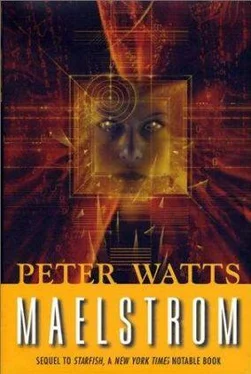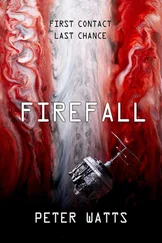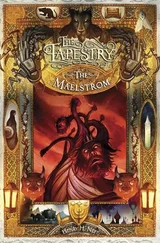It couldn't have suited CSIRA better if it had been planned. Here was a place resistant to the calamities that threatened the rest of the world, by virtue of having already lost anything of real value. The real estate was cheap, too; the nickel mine was long exhausted, and there'd been a vacuum in the local economy since the last of the fuel rods had been buried over in Copper Cliff.
The Entropy Patrol had filled that vacuum. The Sudbury office was one of the hemisphere's top ten.
It was no surprise to Ken Lubin that his quarry was stationed there. That mysterious searcher hadn't seemed to know the specifics of what he or she was after; the caches left behind in Haven had jumped fastest when queried on ecological impacts and sheer correlative epidemiology, slowest when asked about subcellular organelles or biochemical pathways. Not the spoor of someone following an intimately-known agent. More likely someone tracking a new and mysterious one.
Not a pharm, then. Someone with a more ecological perspective, and with—given their access to Haven—a great deal of clearance and autonomy. The Entropy Patrol had the only talent pool that fit.
One good thing about the Patrol was that it was appropriately paranoid on matters of access. In a world dominated by the telecommute, 'lawbreakers dutifully made the daily real-world journey to a single vast, secure catacomb that plugged directly into Haven. Nobody would have been stupid enough to try and manage an entropy outbreak from a home terminal, even if it had been possible. At CSIRA, even the links into Maelstrom were insanely secure.
Which made tracking down employees quite straightforward. They all had to come through the foyer.
There was no listing of individual 'lawbreakers, of course. There was a listing of department heads, available through a small orchard of help kiosks in the main lobby. Once Lubin had what he needed, he stepped outside and headed to the nearest rapitrans stop.
* * *
Donald Lertzman was the archetypal middleman; his career had coasted to that comfortable plateau above those who actually did productive work, but safely short of a position where he had to make any vital decisions. Perhaps, on some level, he'd realized that. Perhaps a fully-detached house, hidden behind a hedgerow of acid-resistant blue spruce at the edge of the Sudbury Burn, was his way of compensating.
Of course, in this day and age he could hardly commute in his private vehicle. He knew the value of appearances; he'd built his livelihood on nothing else. Each night, therefore, he traversed the three blocks between his property and the nearest bus stop on foot. Approximately twenty percent of that distance was out of public view.
"Excuse me, are you Donald Lertzman?"
"Yes, who—"
Lubin carefully noted the medic alert plug-in on Lertzman's wristwatch. It would raise the alarm if his vitals showed any indication of ongoing distress. Of course, a body's stress responses don't just kick in by themselves—they have to be activated by the perception of threat or injury. Most of those signals run through the spinal cord.
Ten minutes after failing to introduce himself, Lubin knew who he was looking for; he knew where to find him; he knew when that person's shift ended. He knew more than he needed, for the moment.
His scheduled meeting at Pickering's Pile was twenty-six hours away. Lubin didn't know if he wanted to wait that long. For that matter, there was no guarantee that this Achilles Desjardins would even show up.
He left Donald Lertzman breathing peacefully.
It was every bit as abrupt, this time: the sudden translocation of place, one world annihilated, another created in its stead. There may have been some warning. A barely perceptible stutter in the feeds, a ping, as if something far away was checking for activity on the line. But it came too fast to serve as any kind of heads-up, even if Perreault hadn't simply imagined it.
It didn't matter. She was waiting. She'd been waiting for days.
The same God's-eye view: a different multitude spread out below, framed by familiar icons and overlays. She'd been shunted from one botfly to another. Nav and GPS were dark for some reason.
But she was indoors, and there was violence.
One man lay twisted on the concrete floor; another's boot caught him in the stomach as she watched. His body folded weakly around the blow in some impotent fetal reflex, smearing blood and teeth in its wake. The face was too torn and bloody to betray any clear ethnicity.
The assailant—smaller, black, his back to the camera—shifted his weight from side to side with a terrible restless energy. His arena was defined by the crowd that enclosed it: some intent, some indifferent, some shaking their own fists in frenzied enthusiasm. Farther away the concentration of humanity thinned out, gave way to sleeping mats and forgotten piles of personal belongings.
Perreault spun through the available menus. No weapons. In the corner of her eye, a flashing distraction: target -162°az: -41°dec
Behind her.
The victor circled, still bobbing. His face came into view, creased in a fury of concentration. His foot lashed out again: a kidney blow to the back. The twitching thing on the floor jerked open like a bloody flower. Its back arched as though electrocuted.
The attacker looked up, straight at Perreault's hijacked botfly. His eyes were the brilliant, crystalline jade of gengineered chlorophyll. They stared from that black face like a hallucination.
Without taking his eyes off the 'fly, he delivered one last kick at the head of his victim. Then he moved into the crowd, unopposed.
Sou-Hon Perreault had never seen him before. She didn't know his victim. But target was at -175°az: -40°dec , and moving.
Pan left. More people, more sleeping mats. Gray unfinished walls rising in the distance, lined with vending machines and, higher up, official pictographs directing the populace to registration and quarantine and latest bulletins . They were in a cement cave ten meters high, erected in the name of mass subsistence: a place for quarantines, an innoculation center, a shelter against those sudden bouts of weather too vicious for the ad-hoc retrofits slapped onto older houses. Increasingly, to many, home .
The unofficial term was Bomb Shelter .
Target was at -35°, -39°. Tactical laid crosshairs onto her the moment she passed into view. Same civilian disguise, same visor. But something had happened to Lenie Clarke since Calgary. She favored one leg when she walked. A yellow bruise spilled across the right side of her face.
Perreault tripped the 'fly's speaker, thought twice, shut it off again. No need to draw unnecessary attention. Instead she brought up the comm menu, got a lock on Clarke's visor, and tapped into the RF.
"Hi. It's Sou-Hon again."
Down on the floor, Lenie Clarke froze. She brought her wrist up; she was no longer wearing a watch.
"Up here," Perreault said "In the botfly."
A proximity alert bleeped in her face: another 'fly coming into range. Perreault spun, caught it arriving through the 'fly-sized catflap two meters over the main entrance.
Even in visible light, the weapons muzzles were obvious.
She looked back down. Clarke was gone. Perreault panned until the crosshairs came up again. The rifter was heading for the door, glancing up at the other 'fly. It didn't notice her; it was headed toward the bloody Rorschach blot at the other end of the cave.
"Not that one," Perreault said. "Me. The little one, the surveil—"
"You're the stalker, right?" Clarke broke in.
"The—yeah. That's what you called me, anyway."
Читать дальше









